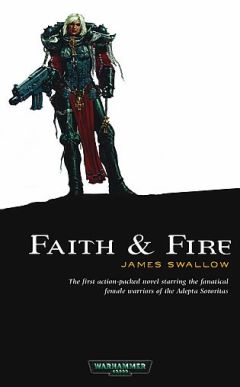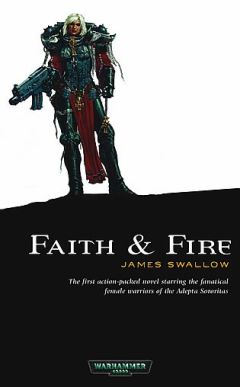Пользователь - WORLDS END
На электронном книжном портале my-library.info можно читать бесплатно книги онлайн без регистрации, в том числе Пользователь - WORLDS END. Жанр: Прочее издательство неизвестно, год 2004. В онлайн доступе вы получите полную версию книги с кратким содержанием для ознакомления, сможете читать аннотацию к книге (предисловие), увидеть рецензии тех, кто произведение уже прочитал и их экспертное мнение о прочитанном.
Кроме того, в библиотеке онлайн my-library.info вы найдете много новинок, которые заслуживают вашего внимания.

Пользователь - WORLDS END краткое содержание
WORLDS END читать онлайн бесплатно
Here was Beauty ready to be launched in a costume about which her son had been hearing talk for weeks: a ball dress of pink tulle, with simili diamonds put on the skirt in three-tier pleated flounces. The corsage was a little coat of heavy guipure lace embroidered with amethysts and gold. It was cut in that ultra style which had caused an old gentleman at a dinner party to say that he couldn't express an opinion of the ladies' costumes because he hadn't looked under the table. The plump and creamy-white bust of Beauty appeared on the point of emerging from the corsage, like Venus from the waves, all that prevented it being two little straps made of flat links of gold. The tiny dancing slippers were of tissue of gold in-crusted with gems, and the high heels took you back to Empire days, having flower designs worked on them in jewels.
"Well, how do you like me?" asked the mother, and Lanny said he liked her well enough to dance with her all night if she needed him. She gave him eager little pats on the head, but he mustn't kiss her because of her powder.
Then he had to admire the costume of the Baroness de la Tourette, likewise completed after labors and consultations. Sophie's crown of henna hair topped a gown of brocade; roses and rose leaves in silver on a ground of rich blue, very supple, and draped graciously - so said its creator, a couturier who was on hand to approve the final effect, and who rubbed his hands together with delight. The gown had a narrow train from the waist, to be held up for dancing, and a deep belt of dark blue velvet, with pleatings of silver lace carried to make kimono sleeves. There was a Cavalier cape of fine old Brussels lace weighted with embroidery of diamonds and gold; and slippers of stamped velvet to match, also embroidered with diamonds. The only difference was that Sophie's were real, while Beauty's were not, and would people notice the difference? It was terrible to feel yourself just an imitation.
But Sophie, good soul, said: "Nonsense! None of the richest people wear their valuable gems any more. They keep them stored in vaults and wear replicas."
"Yes, of course," said Beauty. "But then everybody knows they have the real ones; and everybody knows I haven't!"
"Forget it!" commanded the hardware manufacturer's daughter. "You've got what not one in a hundred has, and most of them would give their eyeteeth for." Kind Sophie said things like that.
Beauty put one more dab of powder on her little white nose, and there was Harry Murchison waiting for her, tall, well set up, looking like a fashion plate. Lanny watched them get into the rich young American's motorcar, and went back into the house, reckoning the months before he, too, would have a full-dress suit and an opera hat, and be able to take his mother to balls at the Savoy Hotel!
VI
Lanny, left alone, went out for a walk. He hked to walk anywhere, but especially in the streets of London. At this time of year it didn't get dark until after nine o'clock, and meantime there were mists and haze and pastel colors in the sky. Lanny would walk by the Serpentine River in Hyde Park, and watch the beautiful black and white swans; he would walk along the Embankment, observing the clouds across the river, and the tugs and launches gliding over the dull gray surface. Sometimes he would climb to the top of one of those new motorbusses, from which for thruppence you could see everything there was in London - seven million people, and nobody had ever counted how many houses, or how many cabs, carriages, and automobiles.
The city had been laid out by ancient Saxon or Roman cows, and rarely had their paths been straight. One village had run into, another, all higgledy-piggledy; and where was Bandbox Lane High Court, or Old Pine Hill New Corners? - you might be within a quarter of a mile of the place, but you couldn't find a soul who had ever heard of it. Few streets had the same name for any distance; you would start walking on the Strand, and presently it was Fleet Street, and then it was Ludgate Hill, Cannon Street, Fenchurch, Aldgate - and like as not would evaporate and disappear entirely. The same peculiarity was shared by the old buildings; you would go down a corridor, and descend three steps, and turn to the left, pass three doors and climb a winding stairway, turn to the right, walk a dozen steps - and knock on a door which hadn't been opened for a hundred years.
Lanny felt in an adventurous mood that evening and started off in a new direction. For a while he was on a wide thoroughfare, with motorcars taking people to the theaters, and crowds looking into windows of gaily decorated shops. Then little by little the neighborhood changed; the shops became poorer, the men wore caps, and the women dingy shawls. The street began to ramble, and Lanny did the same; he was keeping in a general easterly direction, but that didn't mean anything special, for he had never heard of the East End of London. He had the general idea that the seven million population was composed mainly of ladies and gentlemen such as he had seen in Mayfair, with their servants and tradespeople, and a sprinkling of saucy flower girls, lively newsboys, and picturesque old beggars trying to sell you "a box o' lights."
But now Lanny had walked through a looking glass, or plunged down a shaft to the center of the earth, or to the bottom of the sea; he had taken a drug, or fallen into a trance - something or other that had transported him into a new world. He couldn't believe his eyes, and walked on, fascinated, staring; it just couldn't be real, there couldn't be such creatures on earth! English men and women were tall, and stood up straight, and took bold strides, and had long thin faces, sometimes a little too long, especially the women - Robbie impolitely called them horse-faces! Both men and women whom Lanny had met had rosy complexions, sometimes alarmingly so, suggestive of apoplexy. But suddenly here were creatures squat and stooped,
that shambled instead of walking; their legs were short and their arms long - they looked like apes more than human beings! Features crooked, teeth missing, complexions sallow or pasty - no, this couldn't be England!
And the clothes they had on! Lanny had never seen such rags, never dreamed they existed on earth. Clothes that were not fitted to the human form, but dangled as on scarecrows, and when they threatened to fall to pieces were fastened with pins or bits of string, or even pieces of wood. They were filthy with every sort of grime and grease, and gave out the musty acrid smell of stale human sweat; the sum total of it filled the streets and polluted the winds that blew from the North Sea.
And the swarms of these creatures! Where did they come from, and where could they go? The sidewalks were crowded, so that you had to jostle your way. There were no longer any motorcars or carriages, and few horse-drawn vehicles, only pushcarts, called "barrows." Many had things to sell, things that must surely have been gathered out of dustbins: old rags of clothing, as bad as what the people had on; worn, badly patched shoes set in rows along the curb; the cheapest vegetables, wilted and bruised; stinking fish, scraps of meat turned purple or black, old rusty pans, chipped and damaged crockery, all the rubbish of the world. Shops had it spread out in front, and shopkeepers stood watching, whОle dingy women with bedraggled skirts pulled things about and smelled and chaffered and argued. Tired workingmen sat on the steps, puffing at pipes. Babies swarmed everywhere, ghostly death's-head children suckled on gin. There were innumerable garbage cans, and hardly one without some human creature digging in it for food.
Every other place, it seemed, was a pub. Murmurs and sometimes uproar came from within, and now and then a drunken man would push back the swinging doors and stagger forth - bringing with him a reek of alcohol, and more of that dreadful animal stench, and shouts and curses in a language bearing odd resemblances to the one that Lanny used. He would listen and try to puzzle out the words. A young woman with a ragged straw hat, pulling herself loose from a man: "Blymee, I 'ave ter git the dyner fer me bybee!" What was that? And two fellows coming out of a pub wiping big mustaches on coatsleeves and carrying on an argument, one shouting at the other: "Ow, gow an' be a Sowcialist!"
VII
The sun had gone down behind Lanny's back, and twilight was letting down its veils over this strange nightmare. One who thought of being a painter might have noted interesting effects of darkness and shadow; somber brick tenements, three or four stories high, blackened with the smoke of centuries; forests of chimney pots pouring out new blackness all the time; sodden human figures, shawl clad and hunched, growing dimmer in the twilight, blending into the shadows of walls and doorways and dustbins full of trash. But Lanny wasn't thinking about art; he was overcome with more direct, more human emotions. That there should be a world like this, so near to the glittering hotel where his mother and her friends were dancing in their jeweled gowns and slippers! That there should be human beings of English blood, sunk to this state of squalor!
Lanny was beginning to be uneasy. This slum appeared to be endless, and he didn't know how to get out of it. He had been told that any time he lost his way, he should ask a "bobby," but there appeared to be none in this lost world, and Lanny didn't know if it was safe to speak to any of these lost people. The men seemed to be looking at him with hostile eyes, and the leering women frightened him no less. "Two bob to you, mytey!" a girl would say, holding out her hands with what she meant for a seductive gesture. Starved children followed him, beggars whined and showed their sores and crippled limbs; he hurried on, being afraid to take out his purse.
Darkness was falling fast. The shopping district of the slum came to an end, and Lanny, trying to find a better neighborhood, followed a street that widened out. There were sheds, and gravel under foot; dimly he could see benches, and people sitting on them - the same terrible ape figures in stinking rags, men and women and children:
a baby laid on its back, and no one even troubling to put a cover on it; whole families huddled near together; a bearded man with his head back, snoring, a woman curled up against him; a man and a woman lying in each other's arms.
A raw wind had sprung up, and Lanny felt chilly, even while he was walking; but these people sat or lay, never moving. Could it be that they had no place to go? The boy had observed human forms curled up alongside dustbins and sheds, and had supposed they must be drunk; but could it be that they slept out all night?
He pressed on, still more hurriedly; he was beginning to be really afraid now. He had broken his promise to his mother, never to go anywhere except where plenty of people were to be seen. He was in a dark street, and the figures that passed were slinking and furtive, and many seemed to be watching him. He saw two women righting, shrieking at each other, pulling hair; children stood watching them, apathetic and silent.
It was a street of tenements, but now and then came a pub, with lights and sounds of roistering. A man came out, and as he swung the doors open, the light fell on Lanny. The stranger fell in beside him on the narrow sidewalk. " 'Ullo, little tyke!" said he.
Lanny thought he ought to be polite. "Hello," he replied; and the fellow doubtless noted something different about his accent. "Whur yer bound fer, mytey?" he demanded.
"I don't know," replied Lanny, hesitatingly. "I'm afraid maybe I'm lost."
"Ho! Little toff!" exclaimed the other. "Little toff come inter the slums lookin' fer mayflowers, eh, wot?" He was a burly fellow, and in the light of the pub the boy had seen that his face was grimy, as if he were a coal heaver; or perhaps it was several days' growth of beard. His breath reeked of alcohol. "Listen, mytey," he said, leaning over cajolingly, "gimme a bob, will yer? Me throat is so dry it burns up, it fair do."
This was a problem for the boy. If he took out his purse the fellow would probably grab it. "I'm sorry, I haven't any money with me," said he.
"Garn!" snarled the other, turning ugly at once. "A toff don't go withaht no brass."
They had come to a dark place in the street, and Lanny had just decided to make a dash for it, when to his terror the man grabbed him by the arm. "Cough up!" he commanded.
Lanny struggled; then, finding that the fellow's grip was too strong, he screamed: "Help! Help!"
"Shut yer bloomin' fyce," growled the man, "or I'll bryke every bone in yer body!" He fetched the boy a cuff on the side of the head. It was the first time that Lanny had ever been struck in his whole life, and it had a terrifying effect on him; he became frantic, he twisted and struggled, harder than ever, and shouted at the top of his lungs.
The ruffian began to drag him toward a dark opening leading into a court. Lanny's cries brought people to doors and windows, but not one moved a hand to help him; they just stood and looked. They were interested, but not concerned - as if it were a Punch and Judy show.
But suddenly a door in the court was flung open, and a light streamed upon the scene. A young woman emerged, wild-looking, with tousled black hair and a blouse open at the throat and hanging out at the waist, as if she had put it on in a hurry. When she saw the man and his victim, she darted toward them. "Wot yer doin', Slicer?"
The answer was, "Shut yer silly fyce!" But the girl began shouting louder: " 'Ave yer gone barmy, ye bleedin' fool? Carnt yer see the kid's a toff? An' right in front of yer own drum!" When the man continued to drag Lanny into the court, she rushed at him like a wildcat. "Cut it, I sye! Yer'11 'ave the tecs 'ere, an' we'll all do a stretch!"
He called her a "bitch," and she told the world in return that he was a "muckworm." When he still wouldn't give up, she began clawing at his face in a fury. He had to take one hand to push her away, and that gave Lanny his chance; with a frantic effort he tore himself loose and dashed for the street.
The crowd gave way; it wasn't theirs to stop him. The man came pounding behind, cursing; but Lanny hadn't been climbing mountains and swimming in the Golfe Juan and practicing Muscovite leaps for nothing. He was built like a deer, whereas the man was heavy and clumsy, and presently he gave up. But the boy didn't stop until he had got to a thoroughfare thronged with long-bearded Jews and curly-headed babies, and having signs that said: "Whitechapel High Street."
Then a blue uniform, the one sight that could really bring an end to Lanny's terror. The London bobby didn't carry weapons, like the French gendarme, but he was a symbol of the Empire. Lanny waited until he got back his breath and could speak normally, then he approached and said: "Please, would you tell me how to get to the tube?"
The bobby had a large blue helmet, with a strap across his chin. He answered like an automaton: "First t'right, second t'left." He said it very fast, and when Lanny said: "I beg pardon?" he said it again, even faster than before.
The boy thought it over, and then dropped a delicate hint: "Please, might I walk with you if you're going that way?" It was obviously not the right accent for Whitechapel, and the "copper" looked him over more carefully, and then said: "Right you are, guv'nor."
They walked together in silent state. When they parted, Lanny wasn't sure if the symbol of the Empire would accept a tip, but he took a chance, and held out a shilling which he had denied to "Slicer." The symbol took it with one hand and with the other touched his helmet. "Kew!" said he. The visitor had already had it explained to him that this was the second half of "Thank you," doing duty for the whole.
Похожие книги на "WORLDS END", Пользователь
Пользователь читать все книги автора по порядку
Пользователь - все книги автора в одном месте читать по порядку полные версии на сайте онлайн библиотеки My-Library.Info.



